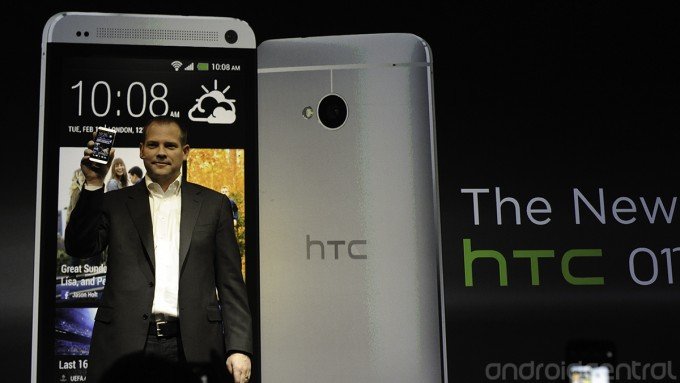The new HTC One Android smartphone is announced, stepping up against Windows Phone 8

HTC has announced the HTC One, a new Android-powered smartphone. The device is made from an aluminium uni-body and is the company's attempt to stop the current down spiral by releasing new, unique hardware. So what's included in the new Android smartphone and how do the specifications compare to the latest Windows Phones?
Sporting a 4.7-inch Super LCD 3 display and designed using a single block of aluminium, it's an attractive look. A quad-core Qualcomm Snapdragon 600 CPU and Adreno 320 GPU provide enough horsepower for apps and games. The chip manufacturer boasts a 40 percent improvements over the previous Snapdragon S4 Pro. It's still more processing power than any Windows Phone requires for a smooth experience.
32GB and 64GB options are available, and the HTC One features 2GB of RAM. LTE is supported, but what's interesting to note is the camera. HTC is boasting a BSI sensor, 4MP, with OIS (Optical Image Stabilisation - hello Lumia 920), an F2.0 aperture and a 28mm lens.

There's a 2,300 mAh embedded battery inside to provide enough juice to last the day. It's quite subtle and we're probably looking too much into the new button layout on the bottom section of the display, but it resembles Windows Phone slightly, with the main logo in the middle (albeit HTC and not Windows) with a single button on either side. We've got to look at it with our platform in mind, right?
As well as the new hardware, HTC has also implemented some improvements with its software too. The HTC One is running Android 4.1.2 and HTC Sense 5 (HTC's custom UI), which includes a Flipboard-esque "BlinkFeed" view. A more traditional Android home screen experience and a revamped app drawer is also bundled.
Moving onto audio, we're looking at dual front stereo speakers and Beats Audio. HTC is branding all this sound technology as "BoomSound." It's quite the package overall, which could end up saving the company in the Android market. We'll have to look at how HTC will improve on the 8X and 8S to compete against Nokia, Samsung and Huawei in the future.
Source: Android Central
Get the Windows Central Newsletter
All the latest news, reviews, and guides for Windows and Xbox diehards.

Rich Edmonds was formerly a Senior Editor of PC hardware at Windows Central, covering everything related to PC components and NAS. He's been involved in technology for more than a decade and knows a thing or two about the magic inside a PC chassis. You can follow him on Twitter at @RichEdmonds.
